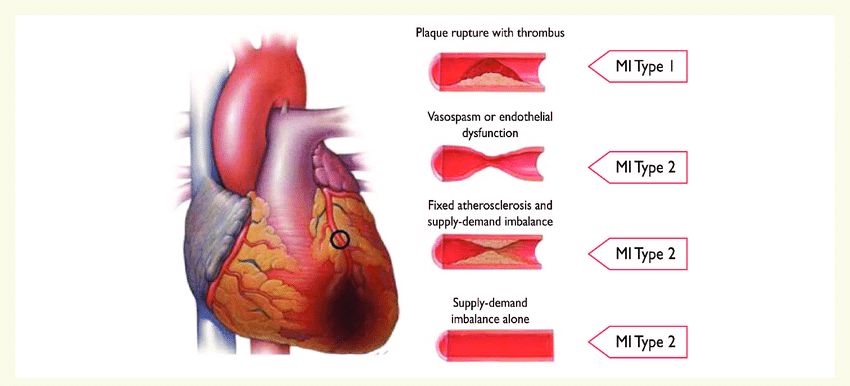Myocardial infarction is a medical name for heart attack, a life-threatening condition in which blood supply to your heart muscle is cut off. Your heart works 24/7, without a stop for a single second. If your heart stops working, its blood supply is disrupted, it can result in death. When blood does not reach your heart, it gets deprived of nutrients and oxygen supply, eventually causing tissue damage. In the word myocardial infarction, myo stands for muscles, cardial means heart, and infarction tissue damage that occurs due to lack of blood supply.
A blockage in the blood vessel can develop due to the build-up of plaque, fat, and cellular waste. For a heart check-up, you can visit the cardiologist in Lahore.
What are the Symptoms of Acute Myocardial Infarction?
The characteristic symptoms of myocardial infarction are chest pain and shortness of breath. However, it may be accompanied by the following symptoms;
- A feeling of pressure or tightness in the chest
- Chest pain
- Pain in the back, jaw- it may last few minutes, or keep coming and going
- Difficulty breathing
- Sweating
- Nausea
- Vomiting
- A fast heart rate
- Anxiety
- Cough
- Dizziness
- A feeling of indigestion or choking like that of heartburn
- Extreme weakness
Are the Symptoms Same in Men and Women?
The general symptoms of myocardial infarction are similar in men and women. But women may have some unusual kind of symptoms. The vague symptoms of myocardial infarction in women are;
- Pain in upper back or shoulder
- Pain that starts at the jaw or spreads to it
- A feeling of pressure or pain in the center of the chest
- Pain that spreads to the arm
- Usual fatigue that lasts many days
What are the Causes of Myocardial Infarction?
Myocardial infarction occurs when a deposit of plaque that includes fats and cholesterol occurs in the blood vessel. The build-up of plaque causes narrowing of the blood vessels- a condition known as atherosclerosis. Due to this, the blood supply is affected. Slowly and gradually, the build-up may block the whole blood vessel, disrupting the blood supply to the heart. When blood does not reach your heart, it does not get enough oxygen and nutrients to function, which can be a life-threatening condition.
How Can You Prevent Myocardial Infarction?
To prevent myocardial infarction, you need to practice some tips. Living a healthy lifestyle is the key to a healthy heart. Tips that can help in preventing a heart attack are;
If you smoke, quit it as soon as possible. It is because smoking hardens your arteries, due to which plaque build-up occurs over them.
Exercise regularly. Make a routine of workout for at least 20 to 30 minutes daily, as doing that ensures adequate blood supply in your body.
Eat a healthy diet that contains fruits, vegetables and does not contain a high amount of fats. To stay healthy, you should eat a protein-rich diet containing eggs, chicken, and milk. To avoid fat intake, you can consume skimmed milk.
Maintain a healthy weight according to your body mass index. If you are overweight or obese, you must lose weight to ensure your heart health.
If you have any other health condition such as diabetes, hypertension, or high blood cholesterol levels, you should attend follow-up visits with your healthcare provider.
Limit sugar and salt intake in your diet.
Conclusion
Myocardial infarction is a medical name for heart attack. It is a medical emergency that needs urgent attention. If anyone near you has any of the above-mentioned signs and symptoms, you should rush them to the hospital. For follow-up visits, you can visit the cardiologist in Karachi.

